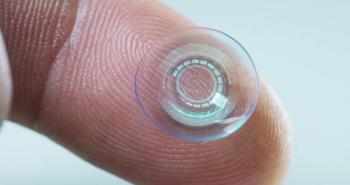
- November digital edition 2020
- Volume 12
- Issue 11
When to lease and when to own office space
Each option has advantages and disadvantages for ODs
If you are like me, you probably had little to no experience with leasing prior to starting practice. Sure, I had rented a couple of apartments, but there are important legal differences between leasing and renting (mainly length of term and legal responsibility for repairs and maintenance). The first office I was fortunate enough to practice in had 3 locations—one where the practice owned the building and the land, and the other two which were leased office spaces. One day a water pipe in the ceiling burst, partially flooding one of the leased office spaces.
A short time later, after a difficult decision to move closer to family that necessitated a change in practice location, I became a partner in another private practice with 3 locations, all of which were practice-owned. In August 2016, historic flooding occurred, leaving several feet of water in one of these offices, ruining everything inside (Figure 1).
The differences in how these 2 unfortunate situations were addressed helped shape my perspective on the topic of leasing versus owning office space. Keep in mind that a 2016 Medical Group Management Association survey found more than 50 percent of responding medical practices had remodeled, added square footage, or changed location in the previous 2 years, all of which have implications in the leasing versus ownership discussion.1
I can unequivocally say leasing is the best option—except when ownership is. There are a host of factors to consider when making this decision, so let’s take a look at several in greater detail.
When to lease
Leasing involves a contractual commitment on behalf of the doctor(s) and/or the practice entity (lessee or leaseholder) to use existing office space owned by someone else (lessor) for a specified length of time.
In general, leasing can offer several benefits, including:
– Greater flexibility: Lease terms are usually much shorter than mortgages and are possible to get out of early, allowing a sooner exit if a move becomes necessary due to practice growth (needing more space) or desiring a different geographic location
– Improved cash flow: Lease payments are almost always less than mortgage payments, and while they may require a deposit, it is much less than the down payment required to purchase real estate, all of which results in improved cash flow to the practice. This can be especially important for young practices, allowing the savings to be invested elsewhere.
– Tax benefits with lease payments: In many cases, the practice’s lease payments are tax deductible (consult your tax advisor or accountant for specifics).
– Personal credit score implications: Leasing typically will not affect the personal credit score of the doctor— unless the doctor defaults on the lease.
– Entry to highly desirable real estate markets: Leasing can allow entry to highly desirable areas that may not have much real estate for sale or options may not be available at reasonable prices. This is especially true in urban, metropolitan, and fast-growing areas.
– Less responsibility for the leaseholder: Depending on individual lease terms, the doctor/leaseholder usually has less responsibility for maintenance and repairs (consult your attorney who can assist with structuring the specifics of your lease). In general, the property owner/lessor is responsible for maintenance and major repairs on the building that become necessary. For example, in the case of the burst water pipe at the leased office space where I worked, the owner of the building was responsible for repairing the plumbing and cleaning up the water damage. The practice had to use its content coverage insurance to replace damaged equipment, furniture, and fixtures.
– Easier practice transition: If the practice goes to sale, leasing can make the transaction cleaner and more hassle-free by eliminating the potential challenge of getting all partners on the same page regarding fair market value and agreeing to sell the real estate. Plus attorney’s fees are less, and the transaction may occur more quickly.1-3
The downsides of leasing include:
– Limited say in major remodeling and renovation decisions
– Being at the mercy of the owner for the timing of when repairs are made
– Lease payments don’t accrue equity in the real estate over time—it’s the proverbial black hole
– Less long-term security: The lessor can increase lease payments over time; the lessor gains more leverage as it becomes more difficult for you to move, although protection can be built into the lease agreement to minimize future lease increases
– Building ownership can change hands, altering your relationship with the lessor
– When the lease is up for renewal, the lessor could open a bidding war with another potential leaseholder or lease the space to someone else
When to own
The traditional scenario of the doctor or the practice entity owning the land and the building in which the practice is located has its own set of pros and cons.
In the situation where the flood damaged our practice-owned clinic, we were able to take advantage of numerous natural disaster tax incentives to rebuild, we controlled the timeline for rebuilding and the choice of contractors, and we didn’t need to ask permission about construction decisions and structural renovations, allowing a faster rebuild with higher quality repairs and the changes we wanted to make (Figures 2-6).
Advantages to owning the practice’s real estate and building include:
– Equity: At the end of the day, there is possession of a hard asset which often appreciates in value over time, resulting in a potential financial advantage over leasing.
– Practice transition appeal: Medical real estate is historically more recession-resistant than traditional real estate,1 making it more appealing in some practice transition scenarios.
– Independence: As previously alluded to, as owner, you independently control decision-making on design, renovation, expansion, repair timelines, and more.
– Tax benefits: Some tax advantages are available to owners, typically including tax deductions for mortgage interest, depreciation expense, potential tax incentives for new construction depending on the area, and others. Consult your accountant and tax advisor for more details.
– Consistent mortgage payments: Unless an adjustable rate mortgage is used, mortgage payments can be locked in for the entire term of the mortgage
– Additional revenue streams: If you own the building, you can form a separate entity to own the real estate and provide liability protection, then the practice entity can pay highly favorable rent terms to your real estate entity, creating tax benefits and yielding another source of income. Additionally, as owner, there is the potential to lease unused areas of the building to other businesses, producing even more income. Again, consult your attorney and accountant for additional advice.
– Long-term security: You can rest assured that the building will not be sold out from under you against your will1-3
On the flip side:
– Owning incurs higher monthly payments and an upfront down payment, both of which negatively impact cashflow – You are responsible for liability and structure insurance, as well as repairs and maintenance
– You accept the risk of potential property value depreciation – Should you default on the mortgage, it will negatively affect your personal credit score as well as leave the practice without a building
– It may be more difficult to move if you outgrow the building or desire a different location should your move be contingent upon the sale of the current real estate asset.
Summary
At the end of the day, the decision whether to lease or to buy office space should be a business decision,1 not an emotional one based on preconceived notions. Utilize your accountant to help guide you through an analysis of the tax benefits and cash flow implications of each option.
If you desire decision-making control, are willing to accept the risks of ownership, expect to be at the location for at least 7 to 10 years, and can afford the cash flow impact of the down payment and higher mortgage payments, then purchasing may be more financially beneficial if affordable property is available where you want to be.
If you favor mobility and flexibility, need to maximize cash flow (especially in a young practice), want to avoid the potential headaches of ownership responsibility, or have limited purchase options, then leasing is likely your best choice.
Either way, success is there for the taking when the practice is run wisely and efficiently, with patient care always at the forefront. Here’s to your success!
References
1. Steward J K. Leasing vs. buying medical office space. Medical Economics. Available at: https://www. medicaleconomics.com/business/leasing-vs-buying-medicaloffice-space. Accessed 9/22/20.
2. Fabian K. Outgrowing Your Office Space? Should You Lease or Buy? Available at: https://www.business.com/ articles/leasing-vs-buying-office-space/. Accessed 9/22/20.
3. BizFilings. Deciding Whether to Lease or Buy a Business Facility. Available at: https://www.bizfilings.com/toolkit/ research-topics/office-hr/how-to-decide-whether-you-shouldlease-or-buy-a-business-facility. Accessed 9/22/20.
Articles in this issue
about 5 years ago
Quiz: Treatments for presbyopia coming soonabout 5 years ago
Quiz Answers: Treatments for presbyopia coming soonabout 5 years ago
Vision rehabilitation of patients with strokeabout 5 years ago
Treatments for presbyopia coming soonabout 5 years ago
How diabetes affects COVID-19about 5 years ago
Novel uses of technology for systemic diseaseabout 5 years ago
Know the pros and cons of outsourcing billingabout 5 years ago
5 communication strategies for dry eye patientsNewsletter
Want more insights like this? Subscribe to Optometry Times and get clinical pearls and practice tips delivered straight to your inbox.















































